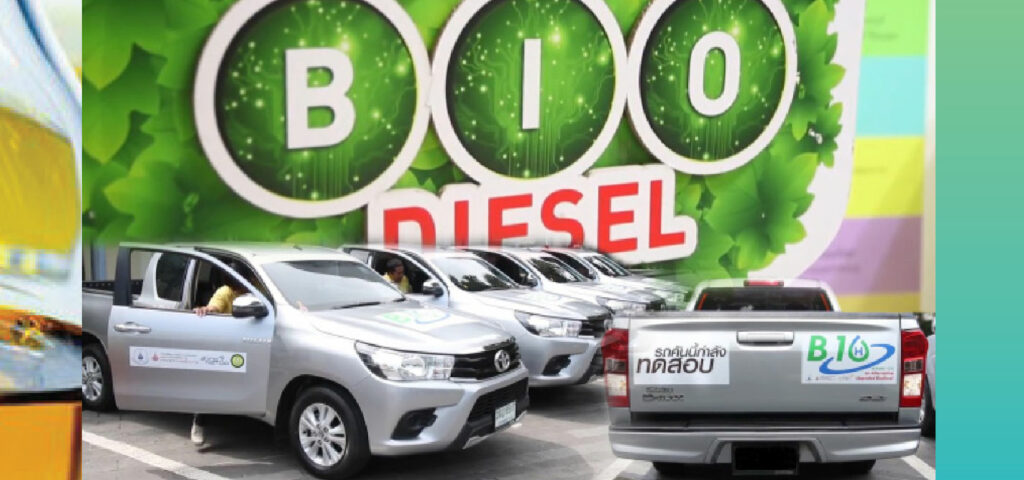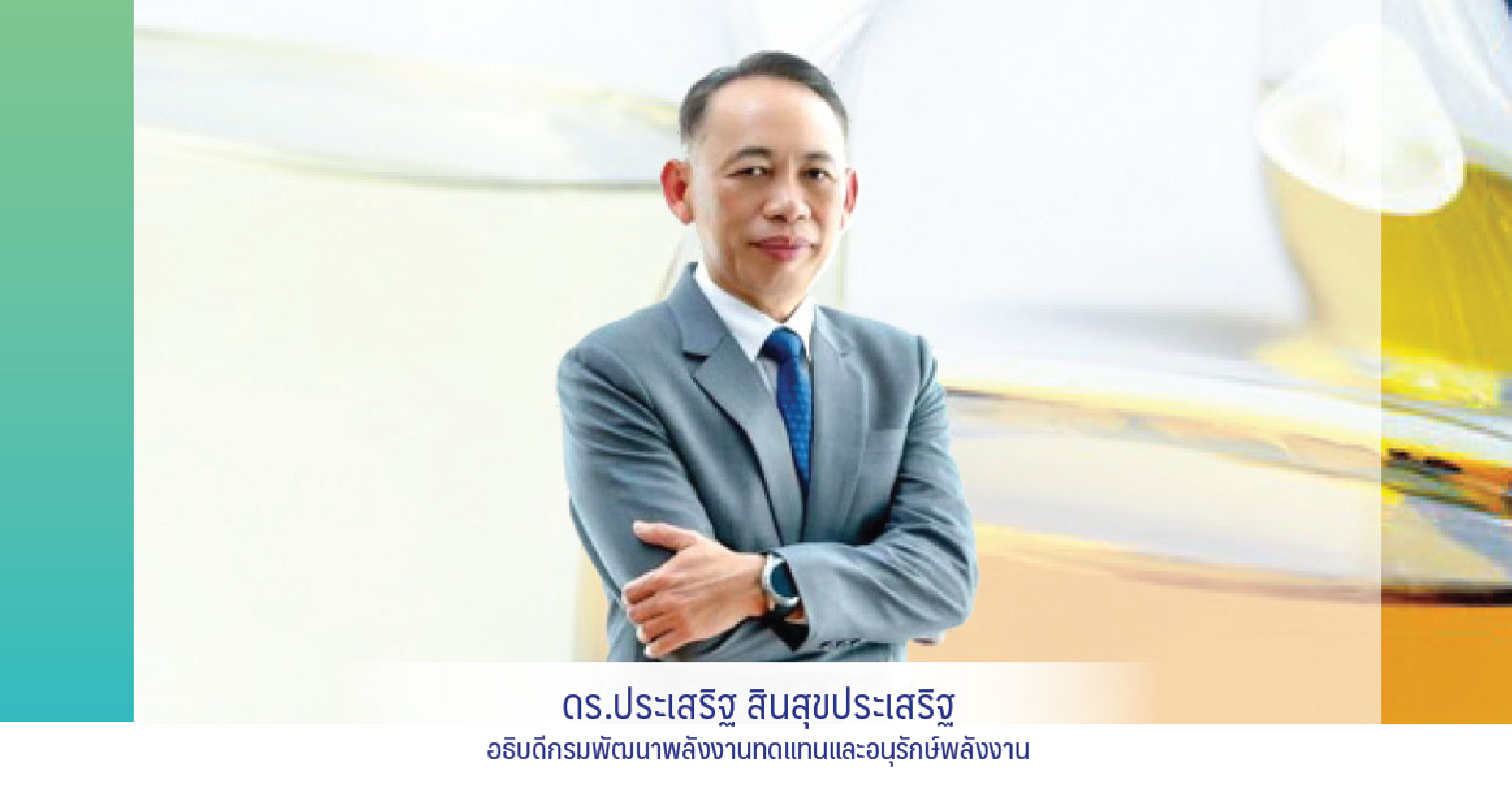Dr. Prasert Sinsukprasert
Director General, Department of Alternative Energy Development and Efficiency (DEDE)
On October 10, 2015, the Alternative Energy Development Plan or AEDP (2015-2036) was approved by the cabinet as proposed by the National Energy Policy Council (NEPC), No. 4/2015 on September 17, 2015, aiming for 30% renewable energy by 2036.
At a meeting of National Energy Policy Council No.2/2016 on May 30, 2016, biodiesel (B10) was concluded as an alternative option focusing on biodiesel quality improvement at a commercial scale, as well as launching a pilot project for B10 usage. The Ministry of Energy by Department of Alternative Energy Development and Efficiency (DEDE) then successfully launched this project in order to push forward the use of biodiesel blended in diesel more than 7 vol% (B7) under the support of the Energy Conservation Fund.
Department of Alternative Energy Development and Efficiency (DEDE) appointed the National Science and Technology Development Agency (NSTDA) as a consultant for the project on Implementation of Higher Blend of Biodiesel with steering committee consisting of representatives from government, research institutes and related associations to expand the use of biodiesel upgrading technology in compliance with the criteria from automotive manufacturers. The activity included high quality biodiesel production at the capacity over 10,000 liters in pilot plant for blending as B10 tested fuel with 8 pick-up trucks on road test at 100,000 kilometers each. The B10 diesel was also successfully used in 158 vehicles of various brands and models with total B10 consumption over 99,000 liters.

The output of this project is a technical guideline for biodiesel standard (B100), which is acceptable as B10 fuel compatibility by automotive manufacturers, as well as acceptable by biodiesel producers without affecting price structure. The B10 standard was issued on May 15, 2019 while B20 standard was announced on December 1, 2019.
B10 diesel grade was issued as a standard diesel in the country on October 1, 2020 after gaining people’s confidence; whereas, biodiesel B7 and B20 were available as alternative fuels. The higher biodiesel blending ratio in diesel from B7 to B10 increases demand by 43%, thus supporting palm oil production in the country, increasing the value from palm-oil consumption, and reducing crude oil imports.
As for the future of biodiesel, the Department of Alternative Energy Development and Efficiency (DEDE) realized that the trend of electric vehicle technology will have a direct impact on biofuel demand, which serves as blending component in commercial fossil fuels for vehicles. Hence, the pathways to reduce impacts on the biodiesel industry are as follows:
1) Maintaining the blending ratio of the biodiesel in diesel fuel. Beginning January 1, 2024, Thailand will mandate diesel of Euro-IV quality with the sulphur content lower than 10 ppm and Polycyclic Aromatic Hydrocarbon (PAH) no greater than 8% in order to be compatible with the Euro 5 vehicle emission standard. However, as of 2021, the automotive manufacturers commercially accept the use of maximum 7% biodiesel blended in diesel for vehicles with Euro 5 emission standard. Therefore, the urgent solution is to build confidence in using standard diesel fuel (or B10) with Euro 5 emission vehicles. This task will confirm the B10 as fundamental diesel in the country, thus maintaining the palm-oil demand used in internal combustion engine vehicles.
2) Seeking new palm-oil demands. For example, the use of palm oil in biojet fuel should be reconsidered as once tested by Thai Airways back in December 2011 but not yet implemented commercially due to a high production cost at that time. However, with lower production technology cost and greater environmental concern, sustainable aviation fuel (SAF) could potentially be realized at a commercial scale in the near future.

